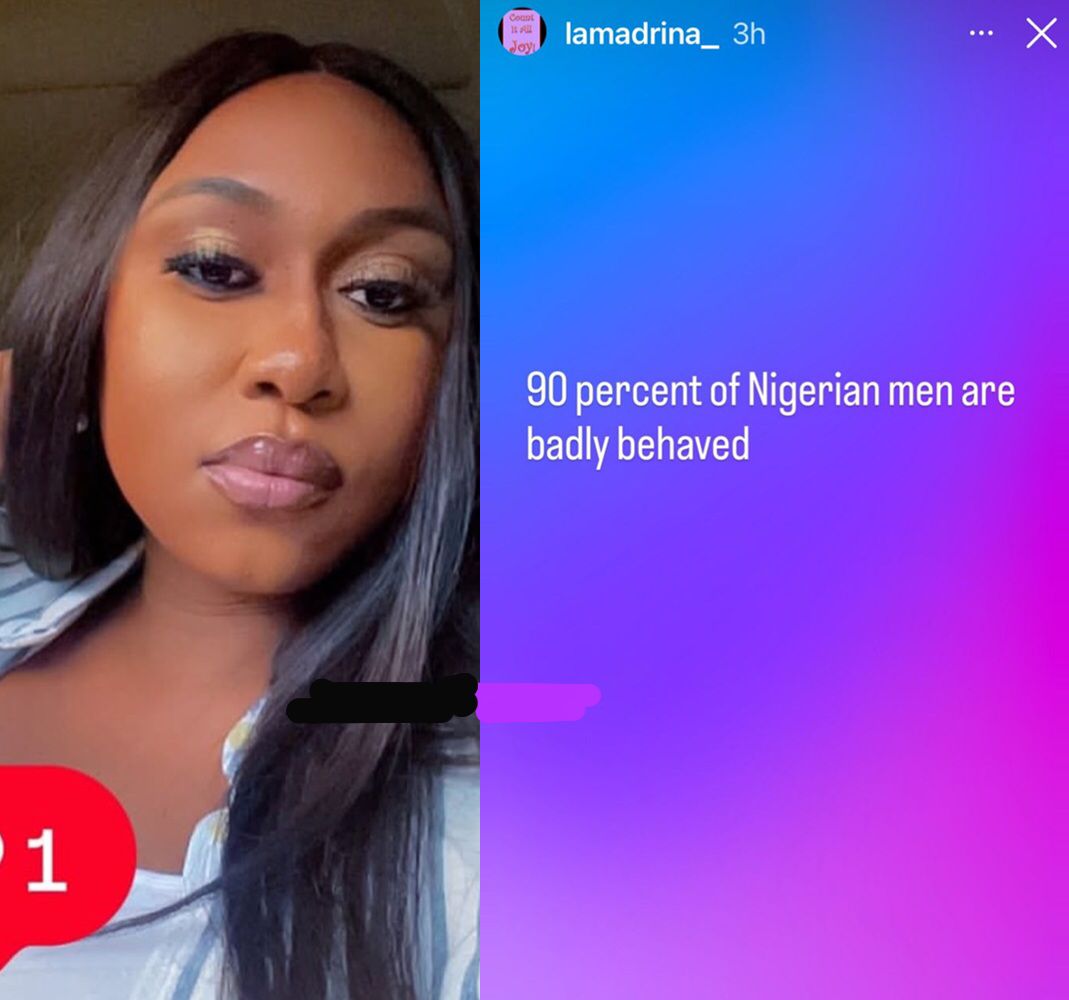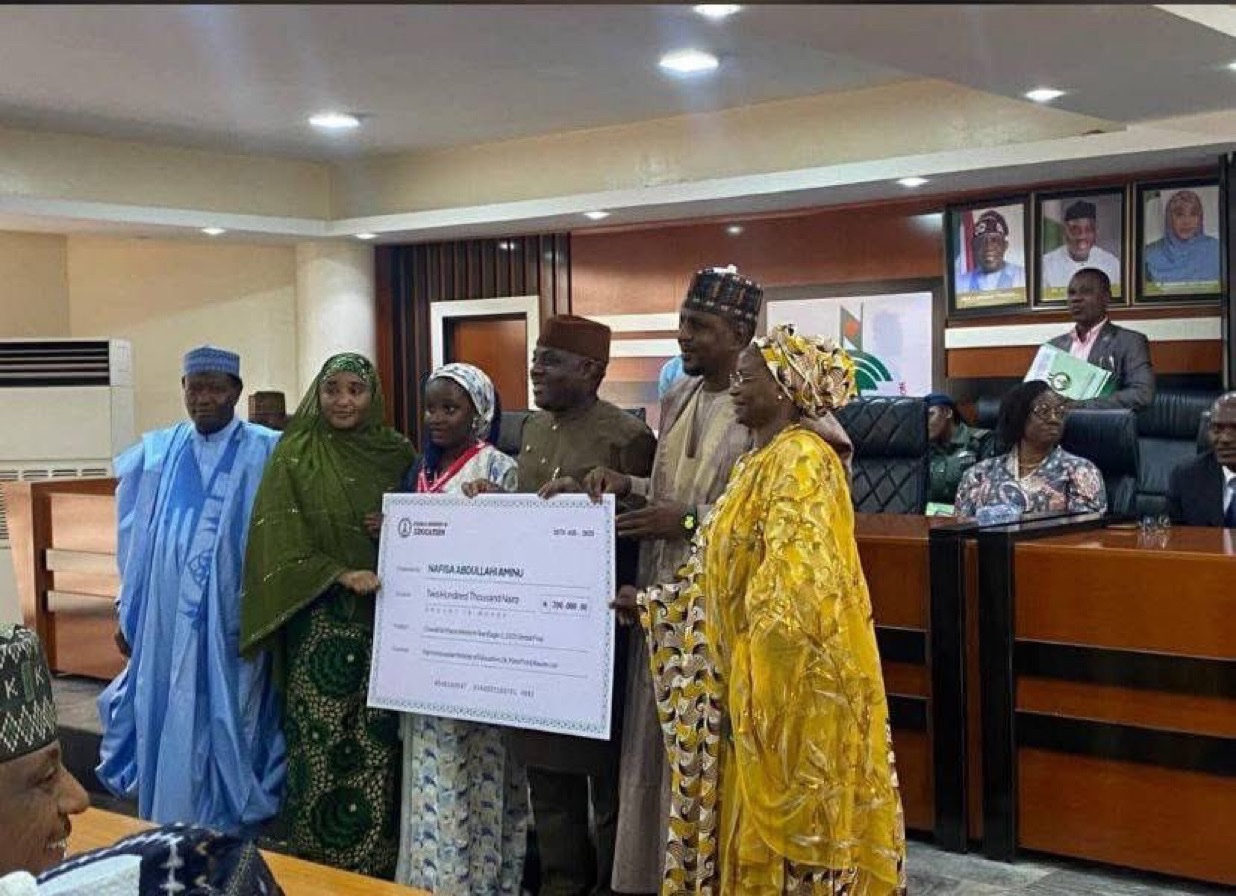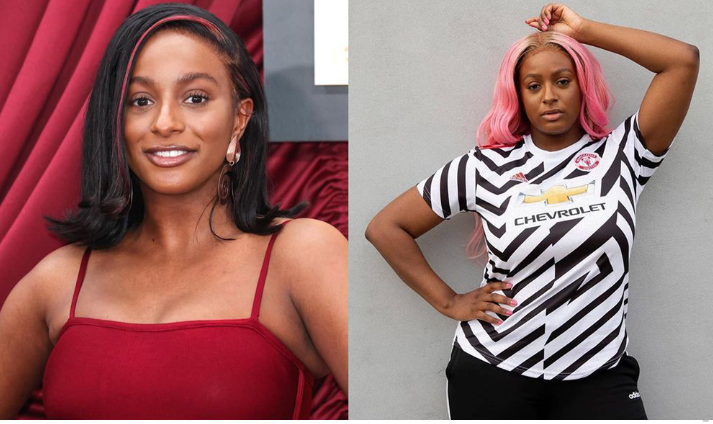
“90 Percent of Nigerian Men Are Badly Behaved” – Cynthia Morgan Sparks Heated Reactions

Nigerian dancehall and reggae artist, Cynthia Morgan, popularly known as Madrina, has once again sparked nationwide debate after boldly declaring that 90 percent of Nigerian men are badly behaved. The controversial statement, which she made during a social media outburst, has set tongues wagging, attracting both praise and criticism as fans and critics dissect her claims. Known for her outspoken nature and fearless personality, Cynthia Morgan is no stranger to making statements that shake the entertainment scene, but this latest comment has struck a nerve across social and cultural lines, fueling intense discussions about relationships, morality, and gender dynamics in Nigeria.
According to the singer, most Nigerian men lack respect, discipline, and good behavior when it comes to how they treat women and even how they conduct themselves in society. She alleged that many of them display arrogance, infidelity, irresponsibility, and a lack of emotional intelligence, which has contributed to the toxic experiences that women complain about in relationships and marriages. Her comments come at a time when conversations about gender equality, abuse, and respect between men and women are taking center stage across Africa, making her outburst a reflection of ongoing frustrations among women who feel underappreciated or mistreated in their personal lives.
Unsurprisingly, her statement drew immediate attention online, with thousands of Nigerians reacting in real time. On one side, many women applauded Cynthia Morgan for voicing out what they have long believed but often kept silent about. Some claimed that her words reflected the reality they experience daily, from partners who cheat without remorse to men who treat women as inferior or disposable. For them, Cynthia’s outburst was not an exaggeration but rather a mirror held up to the society where poor male behavior has become normalized and often excused under the guise of culture or tradition. These women used her statement as an opportunity to highlight their grievances, sharing personal stories about heartbreak, neglect, and disrespect at the hands of Nigerian men.
On the other side, a large portion of men did not take the accusation lightly, calling her generalization unfair, insulting, and damaging. Many male commentators insisted that her 90 percent statistic was baseless and exaggerated, arguing that Nigerian men are hardworking, loving, and deeply committed to their families. They accused Cynthia Morgan of painting an entire gender with one brush, thereby discrediting the good men who uphold moral values and treat women with dignity. Some went further to suggest that her failed relationships or personal grudges may have fueled her outburst, claiming she was using her platform to vent frustrations rather than present facts.
The entertainment industry also had its say in the matter, with several celebrities weighing in on her claims. While a few fellow female entertainers subtly agreed with her, warning men to self-reflect and do better, male celebrities were quick to defend their gender. Some even ridiculed her choice of words, suggesting that comments like hers could damage her already struggling music career by alienating a large portion of her potential fan base. Others, however, noted that whether right or wrong, Cynthia Morgan had succeeded in bringing attention to an important societal issue, which is the need for better behavior, accountability, and respect in relationships.
Beyond the immediate online reactions, Cynthia’s statement has sparked a wider discussion about what exactly “bad behavior” means in the Nigerian context. Critics argued that men are often raised in an environment where patriarchy, entitlement, and lack of emotional education are deeply ingrained, which manifests later in life as problematic behavior towards women. This, they argue, is not solely the fault of the men but a reflection of a society that normalizes double standards. Others pointed out that bad behavior is not exclusive to men alone, as many women also mistreat men in relationships, making Cynthia’s blanket accusation unbalanced.
Her comment also opens the door for examining Nigerian pop culture and the role of the entertainment industry in shaping attitudes toward relationships. From music lyrics that glorify cheating and dominance to skits that mock women’s struggles, pop culture often reinforces harmful stereotypes. Some analysts argue that artists like Cynthia Morgan should not only criticize but also take responsibility for the narratives they push through their music and lifestyle. For instance, her past image as a bold and rebellious dancehall queen was celebrated for challenging norms, but critics now wonder if her current outspoken criticisms are fueled by personal disappointments or genuine concern for women’s welfare.
Despite the backlash, Cynthia Morgan has shown no sign of retracting her statement. Those who have followed her career closely know that she has always spoken her mind, regardless of the consequences. Her transition from being one of Nigeria’s most promising stars under Jude Okoye’s management to her controversial battles with record labels and her health struggles has been marred with ups and downs. In recent years, she has become more vocal about societal issues, using her platform to comment on politics, religion, and now gender relations. For some, this shows growth and bravery; for others, it reflects bitterness and an attempt to stay relevant in the public eye.
Interestingly, the conversation around Cynthia Morgan’s comment has gone beyond just men and women to touch on family and parenting. Some observers argue that the so-called “bad behavior” she mentioned can be traced back to poor upbringing, where boys are excused from responsibilities while girls are burdened with chores and moral expectations. This unequal upbringing, they argue, produces men who grow up feeling entitled and less accountable, ultimately manifesting in problematic relationships. Parents and educators are being urged to take note of this societal imbalance and ensure boys are raised with the same sense of responsibility, empathy, and discipline as girls.
At the same time, the public backlash also highlights the power of celebrity voices in Nigeria. A single statement from an artist like Cynthia Morgan is capable of dominating social conversations, trending across Twitter, Instagram, and blogs for days. It shows how much influence entertainers have, not only in music and film but in shaping societal narratives. For better or worse, Cynthia has once again reminded Nigerians of the need to reflect on uncomfortable realities, even when expressed in controversial terms.
As the dust continues to settle, one thing remains clear: Cynthia Morgan’s comment has tapped into an emotional nerve that resonates with both men and women. For women who have felt dismissed or mistreated, her words were empowering and validating. For men who pride themselves on being responsible and respectful, her words were an unfair condemnation. The truth, perhaps, lies somewhere in between, where society as a whole must take a closer look at its values, its family systems, and the way relationships are approached.
In the end, whether or not 90 percent of Nigerian men are truly badly behaved remains a matter of perspective, shaped by individual experiences, cultural expectations, and societal standards. What cannot be denied, however, is that Cynthia Morgan’s voice has ignited a conversation that refuses to be ignored. And in a society where silence often allows toxic patterns to persist, perhaps a little controversy is exactly what is needed to spark meaningful change.


